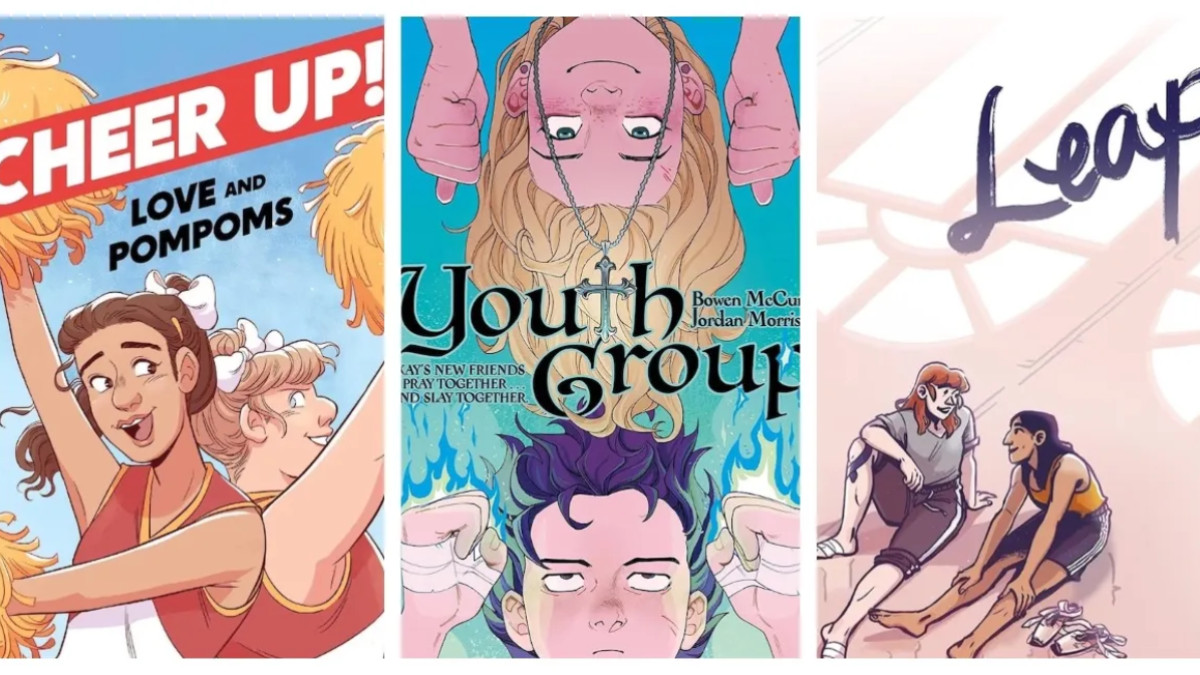Far away from Hall H, there was another reason to celebrate over the weekend of San Diego Comic-Con. The Eisner Awards took place on Friday, July 26, 2024, and women in the comic book industry got some well-deserved recognition.
The Eisner Awards is an annual event where excellence in sequential art is centered and celebrated. Named for influential comic creator Will Eisner, the award ceremony has been an important feature at San Diego Comic-Con since 1988. This year, there were a total of 32 categories. Women, either as individuals or as part of a team, were honored in 17 categories.
Let’s take a look at some of the winners.
The biggest winners of the night were Mariko and Jillian Tamaki for their graphic novel, Roaming. Working with a limited color palette, Roaming follows three college-aged people as they go on a short trip to New York City. It’s about finding and losing connection, and discovering yourself in the messy way that you do in your early 20s. Mariko Tamaki won Best Writer, Jillian Tamaki won Best Penciller/Inker, and the book itself won Best Graphic Album – New.
Becky Cloonan won in two categories – Best Short Story and Best New Series. In Four Gathered on Christmas Eve, Cloonan’s short story was a stand-out vignette. “The Kelpie” is a take on the shape-shifting water horse from Irish and Scottish lore. The pacing and visuals work together to produce an effective, classic monster story. Cloonan worked on the series, Somna: A Bedtime Story with Tula Lotay. Set during the witch hunts of the 1600s, a woman is driven to madness with visions of a dark stranger who comes to her in her dreams. It is equal parts spicy and spooky.
For the third year in a row, Rachel Smythe’s Lore Olympus won in the Best Webcomic category. The story is an updated retelling that features Persephone, Hades, and all of your favorite gods and goddesses of Greek mythology. Smythe announced last year that the series is ending in 2024. The final episode was published on June 1, 2024, on WEBTOON.
Alongside Jillian Tamaki, women won in every illustration-related category. Best Painter/Multimedia Artist went to Sana Takeda for her work on The Night Eaters: Her Little Reapers and Monstress. Jordie Bellaire won the Best Coloring category for Birds of Prey and Dark Spaces: Hollywood Special. Finally, Best Cover Artist went to Peach Momoko for her work on Demon Wars: Scarlet Sin.
Women were honored in other ways as well
Jill Thompson and Lynn Varley were inducted into the Hall of Fame. Varley was chosen by this year’s judges. She is a colorist who is known for her work on Ronin, The Dark Knight Returns, and 300. Thompson is a voter’s choice selection. She is a writer and illustrator who is best known for The Sandman, Scary Godmother, and Beasts of Burden.
The Bob Clampett Humanitarian Award was given to Women in Comics Collective International. According to their website, the organization “serves to highlight the merit and craftwork of marginalized voices, especially that of women and Queer folx of color, who work in various industries, such as comics, publishing, gaming, media, education, and multimedia.” Founded by Regine Sawyer, the group hosts events and organizes panels to bring more awareness to comic creators from diverse backgrounds.
Lastly, the Bill Finger Award for Excellence in Comic Book Writing was given to Jo Duffy. She has worked on Star Wars, Catwoman, Wolverine, and so much more.
This is a big deal!
The Eisner Awards have not always been so inclusive. Like so many literary awards, women and BIPOC have historically been left out of nomination and winner circles. According to a survey done by Cori McCreery in 2021, women accounted for only 16% of all winners since the Eisners’ beginning. Mariko Tamaki is one of two women who have won in the Best Writer category. EVER. Two women. The other is Marjorie Liu for her work on Monstress. Besides this year’s win, Tamaki also won in 2020 for her work on Harley Quinn and Laura Dean Keeps Breaking Up With Me.
In recent years, the statistics are looking better for women in the industry. Having women’s work represented in over half the categories at the Eisners this year is a welcome trend in the right direction. However, women can’t be nominated and win awards if they aren’t being hired. According to comic historian, Tim Hanley, women’s representation in comic book publishing hovers just below 20% in most creator positions. While there is still so much work to do, it is always nice to see instances of women thriving in an industry where they have always existed.










Published: Jul 31, 2024 08:50 pm